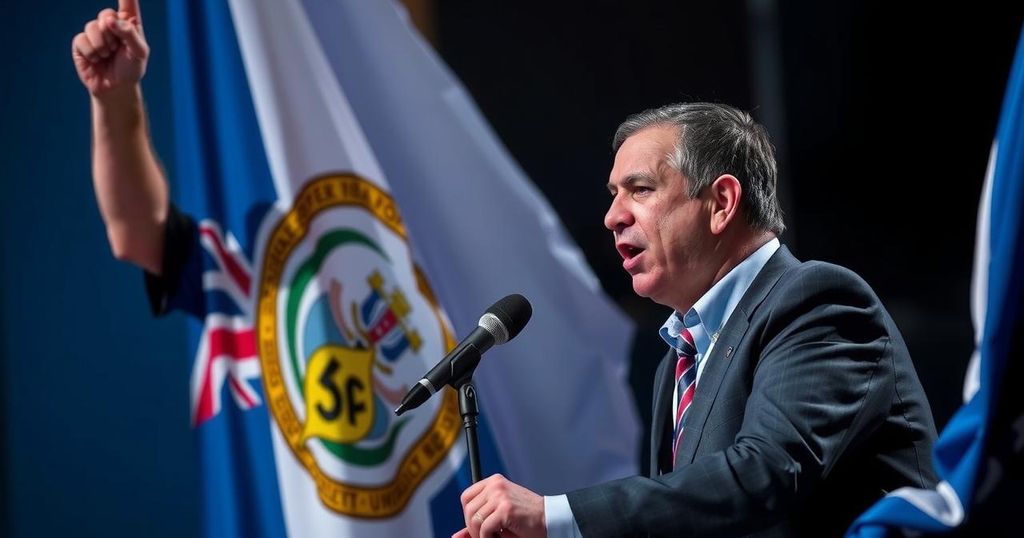Uruguay’s Governing Party Concedes to Left-Wing Challenger Yamandu Orsi

Uruguay’s governing party conceded the presidential run-off to left-wing challenger Yamandu Orsi, marking the end of a short conservative administration. Alvaro Delgado acknowledged Orsi’s victory amidst high voter turnout, reflecting global trends of discontent with incumbents. Orsi plans moderate reforms and collaboration with the past government on pressing issues.
In a significant political transition, Uruguay’s governing party, led by the centre-right coalition, conceded defeat to left-wing challenger Yamandu Orsi on Sunday. Alvaro Delgado, the conservative candidate, acknowledged the outcome with a sense of sorrow but praised his opponent. The election outcome highlights the culmination of a brief conservative tenure that began in 2020, breaking a 15-year rule by the Broad Front, which had previously gained acclaim for progressive reforms, including the legalization of abortion and same-sex marriage.
Even as the votes were still being tallied, Delgado’s concession statement signified a shift in power. Current President Luis Lacalle Pou expressed his intention to assist in Orsi’s transition to leadership, congratulating him through social media. The turnout for the election was notably high at 89.4%, reflecting the citizens’ engagement in the electoral process.
Preliminary results indicated a close contest, with Orsi securing approximately 49% of the votes, while Delgado followed closely behind at around 46%. Orsi’s victory aligns with a global trend in which dissatisfied voters have opted for change, electing new leaders amidst post-pandemic economic challenges. However, Orsi has pledged to maintain moderate policies, collaborating with his predecessors on critical issues such as poverty alleviation and crime reduction, thus continuing a blend of welfare benefits and market-friendly initiatives.
The political landscape in Uruguay has witnessed significant changes over the past few years. The Broad Front, which governed the country for 15 years, was known for implementing progressive policies that garnered international recognition. In 2020, the conservative coalition led by Luis Lacalle Pou ended this long-standing rule, but the current run-off election has now reversed this trend. The recent elections reflect a broader global dissatisfaction with incumbent governments amid economic challenges post-COVID-19, as voters seek renewed leadership and policies.
In conclusion, the governmental transition in Uruguay signifies a notable shift in political direction from conservative to left-wing leadership, mirroring global trends of voter discontent and a desire for reform. Yamandu Orsi’s victory not only reinstates the Broad Front in power but also emphasizes a commitment to moderate policies aimed at addressing key societal issues. The high voter turnout further reflects the active participation and engagement of Uruguayan citizens in their democratic processes.
Original Source: www.shropshirestar.com






